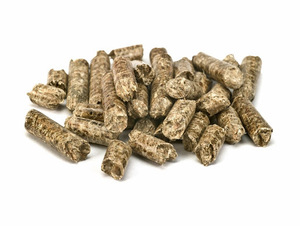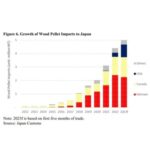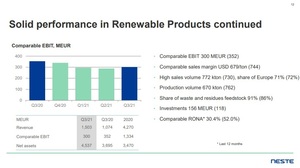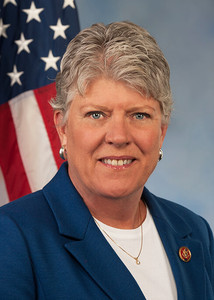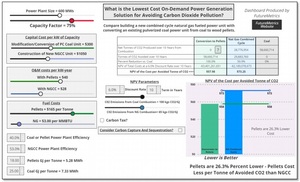USIPA, UK REA slam Chatham House report on US wood pellets
Energy Disrupter
ADVERTISEMENT
The U.S. Industrial Pellet Association and U.K. Association for Renewable Energy and Clean Technology (REA) are slamming a new Chatham House report on biomass energy that they say uses deeply flawed carbon accounting methods.
The paper focuses on the use of U.S. wood pellets in power and combined-heat-and-power (CHP) applications in the European Union and U.K., claiming that European governments are not properly accounting for greenhouse gas (GHG) emissions created through the supply and use of U.S. wood pellets.
USIPA, however, is stressing that the Chatham House report contradicts the UN IPCC on the role of sustainable biomass as an essential tool for mitigating climate change. “The conclusions of its latest report are deeply flawed, and are based on a total rejection of carbon accounting and reporting guidelines as determined by the world’s leading authority on climate science,” USIPA said in a statement.
“These methodologies were reaffirmed by the UN IPCC in 2019 following a review of the latest scientific literature, and with input from thousands of climate scientists. A peer-reviewed paper published this year by 28 leading academics also found that the UN IPCC reporting approach is “accurate, has no gaps and does not assume that bioenergy is carbon neutral although it has sometimes been described as such.”
“That Chatham House continues to cling to a thoroughly debunked position while vigorously promoting it to the public as a consensus view, deeply undermines its standing as a trusted forum for debate and dialogue.
“Only two months ago, the UN IPCC released its Sixth Assessment report, representing our latest and best understanding of both the causes of climate change and the action needed to prevent it. The report shows indisputably that sustainable biomass is essential to limiting global temperature rise and avoiding the worst impacts of a warming planet. In particular, the IPCC pathways that give humanity the best chance at achieving the goals of the Paris Agreement rely significantly on bioenergy with carbon capture and storage (BECCS). The models show BECCS is needed to extract almost 5bn tons of CO2 a year – or twice the EU’s annual emissions – by mid-century, increasing to 17bn by 2100.
“Chatham House must ask itself why the IPCC would champion sustainable biomass, indeed citing the need for its rapid expansion, if it is not a climate solution,” USIPA added.
REA is also speaking out to criticize the report and its methodologies, calling for a fair and honest science-led debate that avoids polarizing statements and recognizes the role of biomass in decarbonizing energy systems.
“Today’s Chatham House report misrepresents well-established carbon accounting methodologies for the use of biomass in energy, set out and reaffirmed by the thousands of scientists at the UN IPCC,” said Nina Skorupska, chief executive of the REA. “This is an approach that has also been verified by leading independent scientific bodies such as the UK’s Climate Change Committee and the International Energy Agency, whose scenarios for achieving Net Zero carbon emissions all demonstrate a critical role for the use of sustainable biomass and bioenergy with carbon capture and storage (BECCS).
“Calls to restrict the types of biomass feedstocks used fail to appreciate that in sustainably managed forests, where biomass feedstocks originate, forestry activities are driven by higher-value sectors such as supplying wood to the construction and furniture industries, which pay much higher prices for wood fibre than the bioenergy sector. These activities drive the availability of low-value residues and thinnings as a by-product of sustainable forestry, which then go to bioenergy because they lack other markets.
“Use of this type of biomass is also certified through independent schemes, such as the Sustainable Biomass Program, which audit sustainable supply chain practices and go beyond even the strict national sustainability governance arrangements in place in the UK and EU. This results in increased carbon stocks in the forest where biomass originates, as proven by real-world data from forests in the United States, for example, where forest cover and sequestered carbon have more than doubled since the 1950s, due to careful stewardship and supply of sustainable wood products.
“Earlier this year, 28 leading climate scientists published a peer-reviewed academic paper that warned against exactly the kind of misconception seen in today’s report, which are borne out of a failure to appreciate whole system dynamics present in bioenergy use and forest carbon. Therefore, it remains disappointing that Chatham House continues to take an inaccurate and minority view that misrepresent robust carbon accounting methodologies, along with the critical need for biomass use in power, heat and transport decarbonisation.
“The REA calls for a resetting of this increasingly polarised debate. With COP 26 approaching, it is essential that a fair, honest and science-led debate is had. This must recognise the need for bioenergy in decarbonising energy systems and enable all stakeholders to engage with the established and verified carbon accounting methodologies that sit behind bioenergy use.”

